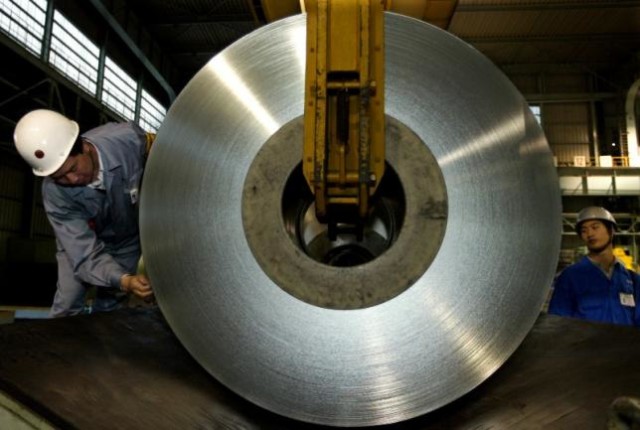The United States Commerce Department is recommending restrictions on imports on steel and aluminum.
Using a rarely used law designed to protect industries vital to U.S. national security, commerce officials have sent a list of recommendations to U.S. President Donald Trump. Potential Actions being recommended are:
Aluminum:
- Tariff on all aluminum products from all countries of at least 7.7 percent
- Tariff of 23.6 percent on aluminum imports from China, Hong Kong, Russia, Venezuela and Vietnam
- Global quota of 86.7 percent of 2017 exports to the U.S.
Steel:
- 24 percent tariff on all imports from all countries
- 53 percent tariff on steel from 12 countries (Brazil, China, Costa Rica, Egypt, India, Malaysia, Republic of Korea, Russia, South Africa, Thailand, Turkey, Vietnam)
- Quota of 63 percent of each country’s 2017 steel exports to the U.S.
The U.S. President has until April 11 to decide on the steel recommendations, and April 19 on the aluminum measures. He can pick any recommendation, amend them or decide not to act.
The action has been fiercely resisted by steel producing countries including China as well as U.S. manufacturers that rely on steel and aluminum at low prices like car makers and soft drink companies. There are fears that prices will rise if these recommendations are implemented.
Companies in the U.S. can appeal. It’s likely other nations will take their complaints to the World Trade Organization.
China’s Ministry of Commerce (MOC) criticized the U.S. government report, saying the findings were “groundless” and do not tally with the facts. “If the United States’ final decision affects China’s interests, we will take necessary measures to defend our rights,” said Wang Hejun, head of the MOC’s trade remedy and investigation bureau.
The U.S. is citing a rarely used provision of the 1962 Trade Expansion Act to impose tariffs if National Security is threatened. The Commerce Department argues that domestic production is vital to support U.S. aerospace and defense industries. If they’re priced out of business it could make the U.S. overly-dependent on foreign steel and aluminum producers that might be too far away in times of crisis, or unfriendly to the United States.
This latest trade move follows the tariffs imposed on imported solar panels and cells and washing machines. The Trump administration pulled out of the Trans Pacific Partnership free trade deal with 11 other nations and is also in the process of renegotiating the North American Free Trade Agreement with its neighbors Mexico and Canada.
The Trump administration says this is putting America first. In a globalized economy many economists argue this approach will make the U.S. less competitive.
 CGTN America
CGTN America Chinese workers unload a roll of tin plate at Baosteel plant on the outskirts of Shanghai November 20, 2003. (REUTERS/Claro Cortes)
Chinese workers unload a roll of tin plate at Baosteel plant on the outskirts of Shanghai November 20, 2003. (REUTERS/Claro Cortes)
